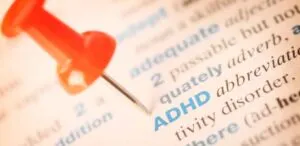Dissociative Disorders:
Dissociative disorders are a group of conditions that involve disruptions in consciousness, memory, identity, emotion, and/or perception. These disorders can be caused by traumatic events or severe stress. They can significantly impact a person’s daily functioning and quality of life.
What are the Different Types of Dissociative Disorder?
There are several types of dissociative disorders, including:
- Dissociative Amnesia: described by sudden and unexpected episodes of memory loss that cannot be explained by normal forgetting or other medical conditions.
- Depersonalization-derealization disorder: characterized by persistent or recurrent episodes of feeling detached from oneself or reality.
- Dissociative identity disorder (DID): The condition is known as Dissociative Identity Disorder (DID), where a person has multiple identities that control their behavior, and they experience memory loss that cannot be explained by normal forgetting.
- Dissociative fugue: characterized by sudden, unexpected travel away from home or place of work, with difficulty remembering one’s past and confusion about personal identity or adoption of a new identity.
- Other specified dissociative disorder: includes dissociative symptoms that do not meet the full criteria for any of the above disorders but still cause significant distress or impairment in functioning.
Unspecified dissociative disorder: The individual experiences distress or impairment due to dissociative symptoms, but these symptoms do not meet the criteria for a specific dissociative disorder.

What are the Symptoms of Dissociative Disorder?
Some common symptoms include:
- Inability to remember important personal information that is not due to normal forgetting or other medical conditions.
- A sense of being detached from one’s own body or thoughts, as if watching oneself from the outside.
- A sense that the world around you is not real or that things around you are not happening.
- Confusion about one’s own identity or sense of self, such as feeling like a different person or having different identities.
- Feeling emotionally disconnected from others.
- Alterations in perception such as hallucinations, derealization, etc
- Difficulty with concentration and attention
- Physical symptoms such as headaches, fatigue, sleep disturbances, and pain without a clear cause.
It’s important to note that not all people with dissociative disorders will experience all of these symptoms, and the symptoms can vary in intensity and frequency.
An Example of Dissociative Disorder
Dissociative Identity Disorder (DID) is a type of dissociative disorder, previously called Multiple Personality Disorder. This disorder is identified by the existence of two or more separate identities or personalities that dominate a person’s actions and memory loss of personal details.
A person with DID may have different identities or “alters” that are created as a way of coping with a traumatic event or severe stress in their life. Each alter may have its own name, age, gender, and distinct characteristics, such as a different voice, mannerisms, and beliefs. These alters may take control of a person’s behavior at different times, resulting in gaps in memory or a feeling of being detached from oneself.
For example, a person with DID may have an alter that is a child, and another alter that is a confident and assertive adult. The child may surface during stress or trauma, and the adult alter may take control during everyday life. The person may not be aware of the other alters or have memory gaps of events that occurred while the other alters were in control.

What are the Risk Factors of Dissociative Disorder?
Risk factors for dissociative disorders include:
- Trauma: Exposure to traumatic events, such as physical, sexual, or emotional abuse, war, natural disasters, or accidents, is the most significant risk factor for dissociative disorders.
- Childhood abuse or neglect: Individuals who experience severe abuse or neglect during childhood are at an increased risk of developing dissociative disorders.
- Family history: Having a family member with a dissociative disorder may increase the risk of developing the disorder.
- Chronic stress: Prolonged exposure to stressful situations, such as living in a war zone or a natural disaster, can increase the risk of developing dissociative disorders.
- Personality traits: People who are more prone to dissociation or have traits like high levels of absorption, fantasy proneness, and a tendency to dissociate under stress may be at higher risk
- Other mental disorders: Having another mental disorder, such as post-traumatic stress disorder (PTSD) or borderline personality disorder, can also increase the risk of dissociative disorder.
It’s important to note that not everyone who has been exposed to traumatic events will develop a dissociative disorder, and not all people with dissociative disorders have a history of trauma.
What are the Treatment Options for Dissociative Disorder?
Treatment options for dissociative disorders include:
Psychotherapy: The main treatment for dissociative disorders is psychotherapy, specifically talk therapy or psychodynamic therapy. It helps individuals understand and process traumatic events that may have led to the disorder.
Trauma-focused therapy: Trauma-focused therapies, such as Eye Movement Desensitization and Reprocessing (EMDR) and cognitive-behavioral therapy (CBT), are also effective in treating dissociative disorders. These therapies help individuals to process and come to terms with traumatic memories, reducing symptoms of dissociation and other trauma-related symptoms.
Medications: The signs and symptoms of dissociative identity disorder cannot be treated with medications. Antidepressants and anti-anxiety may be prescribed to reduce symptoms of depression, anxiety, and other emotional difficulties associated with dissociative disorders.
Supportive therapy: Supportive therapy is an essential aspect of treatment, particularly for individuals with dissociative identity disorder (DID), which can include support groups, education about dissociation, and other resources to help individuals cope with symptoms and improve their overall quality of life.
Hospitalization: In severe cases of dissociative disorders, hospitalization may be necessary to ensure the safety and well-being of the individual.
Novus Beginning Psychiatry: Your Path to Health and Wellness Starts Here!
We understand that navigating the complexities of mental health can feel overwhelming, but you don’t have to face it alone. At Novus Beginning Psychiatry, we’re here to support you every step of the way. Whether you’re seeking therapy, medication, or a combination of both, our compassionate professionals are dedicated to helping you find the path to a happier, healthier life.
Our highly skilled psychiatrists are experienced in a wide range of mental health conditions, including anxiety, depression, bipolar disorder, OCD, PTSD, ADHD, autism, and more. We offer evidence-based therapies that have been proven effective in helping individuals overcome their challenges. From cognitive-behavioral therapy (CBT) to couples/family therapy, we utilize the most up-to-date techniques to empower you on your healing journey.
We also recognize that medication is vital in managing certain psychological health conditions. Our team includes Dr. Nibras, who is a board-certified psychiatrist well-versed in medication management. He works closely with you to develop a comprehensive treatment plan, as we believe in the power of personalized care.
So, take the first step towards a brighter future. Contact us today to schedule an appointment. Our friendly staff is ready to assist you in finding a convenient time to meet with our dedicated professionals. Call (832)856-4718 and let us help you take charge of your mental well-being.
Medication Management For Psychiatric Wellness
At Novus Beginning Psychiatry, we’re dedicated to helping you unlock the power of effective medication management. Our team of psychiatrists has years of experience and understands the importance of finding the right balance for your mental health journey. We offer personalized and compassionate care, creating medication plans that are tailored to your unique needs. Our understanding of psychopharmacology allows us to provide the most advanced and evidence-based treatments available.
Our goal is to help you by providing the right medications to enhance your therapy outcomes, reduce your symptoms, and improve your overall well-being. We want to be your trusted partner on the path to a brighter future. Please don’t hesitate to contact us at Novus Beginning Psychiatry to experience the transformative effects of our comprehensive medication management approach.
Who is Dr. Nibras?
Dr. Sohail Nibras is a double board-certified psychiatrist in child, adolescent, and adult psychiatry. He completed his education at Saint Louis University and the American University of Integrative Science. He excels in treatments based on psychiatric care and therapeutic sessions and has experience treating dual psychiatric and substance use disorders. He is an assistant professor at the Menninger Department of Psychiatry and Behavioral Sciences at Baylor College of Medicine in Houston, Texas. He serves as an attending psychiatrist at Texas Children’s Hospital. He trains future psychiatrists and engages in scholarly research projects.
Visit us
Come and visit us at one of our locations in-person or meet us via telepsychiatry/online!
We’re here to help in Texas, ready to meet you in person. If you’re unable to make it in person, don’t worry, we’re also available online, so you can meet us easily from the comfort of your own home. Whether you prefer to see us face-to-face or connect with us online, we’re here to assist you every step of the way.
Address in Sugar Land
120 Eldridge Rd Suite D, Sugar Land, TX 77478
Address in Katy
23410 Grand Reserve Drive, Ste. 401 & 402 Katy, Texas 77494



